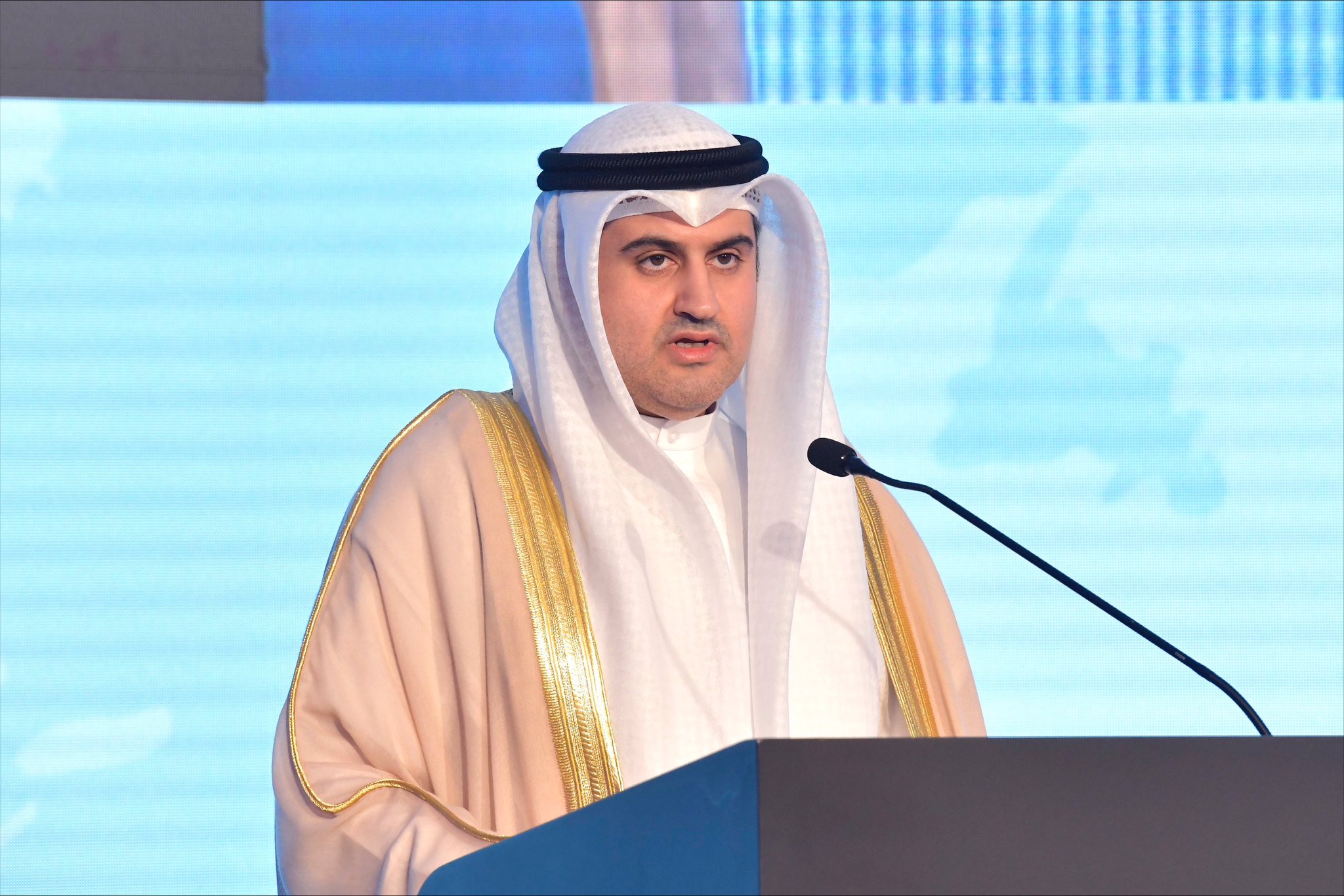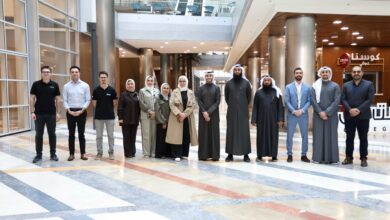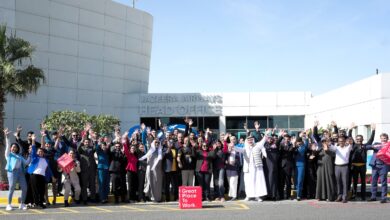Kuwait leads sixth forum to tackle human trafficking, migrant smuggling
Minister of Justice Counselor Nasser Al-Sumait highlighted Kuwait’s ongoing commitment to protecting rights, promoting justice, and improving measures related to human dignity and labor rights.

• Minister of Justice and Chairman of the National Committee to Combat Trafficking in Persons and Migrant Smuggling, Counselor Nasser Al-Sumait,emphasized that global conflicts have created a fertile ground for human trafficking and migrant smuggling, urging unified efforts and stronger cooperation to prevent these crimes in the Middle East.
Minister of Justice and Chairman of the National Committee to Combat Trafficking in Persons and Migrant Smuggling, Counselor Nasser Al-Sumait, emphasized on Thursday that the sixth session of the Government Forum on Combating Trafficking in Persons in the Middle East serves as a regional platform for sharing experiences and strengthening efforts against organized crime, reported Arabic daily Al Rai.
In his opening address, Al-Sumait highlighted Kuwait’s ongoing commitment to protecting rights, promoting justice, and improving measures related to human dignity and labor rights.
Al-Sumait emphasized that Kuwait’s commitment to combating human trafficking and migrant smuggling is grounded in its constitution, national laws, and international obligations. This commitment aligns with Kuwait’s development plan, New Kuwait 2035, which actively engages in international human rights and sustainable development goals, particularly Goal 8, “Decent Work and Economic Growth.”
Al-Sumait noted that the current global situation, marked by wars and conflicts, has created a conduciveenvironment for human trafficking and migrant smuggling. He stressed the need for unified efforts and intensified cooperation to prevent these crimes from escalating, particularly in the Middle East. “This meeting takes place in a world on fire, with parts torn apart by wars, which feeds the thriving crimes of human trafficking and migrant smuggling,” he remarked, emphasizing the importance of addressing the root causes.
Common space to discuss ideas and challenges
He proposed launching a regional initiative to integrate national strategies through a unified digital platform. This platform, managed by the forum’s general secretariat, would allow for the exchange of information, facilitate joint legislative, judicial, and executive cooperation, and create a common space to discuss ideas and challenges.
Al-Sumait also praised Oman’s leadership in organizing the previous session and their ongoing efforts to follow up on the forum’s outcomes. These efforts have led to actionable recommendations and measures to combat human trafficking effectively.
Jassim Al-Budaiwi, Secretary-General of the Gulf Cooperation Council (GCC), expressed his appreciation for Kuwait’s strong focus on human rights issues. He also highlighted the forum as a vital annual platform for exchanging expertise and strengthening cooperation between GCC states. Al-Budaiwi further noted the importance of the Abu Dhabi Document, adopted in 2006, which outlines the GCC’s unified approach to combating human trafficking.

He stated that at its 35th session in 2014, the Supreme Council also adopted the Declaration of Human Rights of the Cooperation Council for the Arab States of the Gulf. Article 3 of this declaration affirms that “slavery, servitude, forced labor, and human trafficking in all its forms and manifestations are prohibited, especially those affecting women and children.”
He added that all GCC countries have ratified the Palermo Protocol against Trafficking in Persons, which serves as a strong international legal framework for combating human trafficking. These countries have also enacted specific national laws to criminalize human trafficking, providing clear mechanisms to protect victims and prosecute perpetrators.
He explained that the GCC countries are implementing regulatory reforms in the labor market by developing legislation that governs the relationship between expatriate workers and employers, strengthens wage protection systems, and ensures contract documentation. These reforms are part of a serious effort to reduce exploitation in the workplace.
Shared commitment to combating human trafficking
Sheikh Khalifa bin Ali Al Harthi, president of the previous session, stated that this event reflects the shared commitment to combating human trafficking, one of the most heinous crimes that threatens humanity and harms individual rights and societies. He emphasized that the forum is an important opportunity to exchange expertise and ideas on the best ways to combat this cross-border crime, highlighting that international cooperation is essential for success.
Sheikh Al Harthy also stressed the need for enhanced joint action, knowledge exchange, and the use of modern technologies to combat human trafficking. He affirmed Oman’s commitment to supporting global efforts to eliminate human trafficking and ensure that all individuals enjoy the human dignity they deserve.
Protecting rights and promoting justice
Nibras Talib, representative of the forum’s Permanent Secretariat, emphasized that the current forum is discussing one of the most important topics: protecting rights and promoting justice to combat human trafficking. He stressed the importance of creating a unified vision for developing innovative solutions and approaches that are aligned with the region’s reality.
He added that the sixth session of the forum comes at a time when the experiences of participating countries in combating human trafficking have matured, as reflected in the recommendations from the previous five forums.
He praised the legislative step taken by Kuwait with the issuance of Law No. (114) of 2024 on Foreigners’ Residence, which addresses challenges such as trafficking in residence and employment exploitation, calling it an exemplary practice at the legislative level.
He expressed hope that the forum’s recommendations would create a unified vision for protecting rights and promoting justice, considering the region’s demographic, economic, and social composition.
During the forum, a panel discussion was held on “Protecting Rights and Promoting Justice in Combating Trafficking” and a Gulf working session on the updated strategy.












